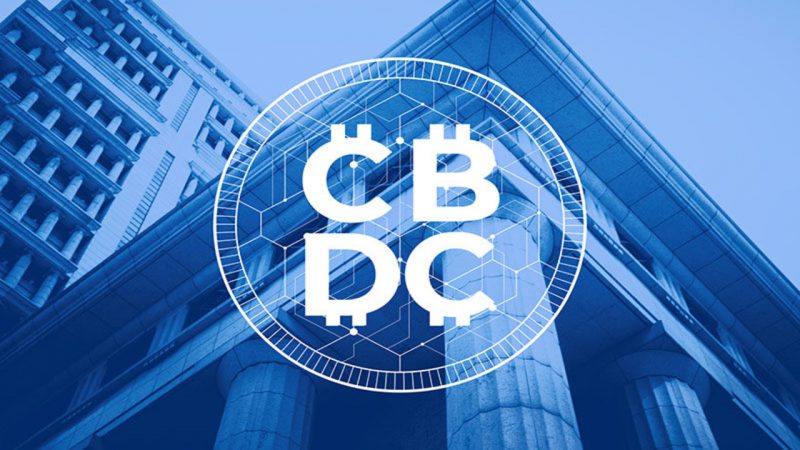The battle of CBDC vs crypto pits government digital money against independent cryptocurrencies. This affects everyone’s financial freedom and who controls our money. Over 130 countries now study Central Bank Digital Currencies (CBDCs). This creates new questions about our privacy, changing rules, and how we’ll use money in the future. These changes will transform how we spend, save, and manage our finances. The shift to digital currencies marks a crucial turning point in monetary history and personal financial control.
THIS could be the new form of #CBDC.
— Efrat Fenigson (@efenigson) December 3, 2024
I’ll try to dig deeper and understand if this stable shit coin is programmable. If it is – we understand the trajectory.
I’ve been warning about this in all my recent talks. Such a horrible company & products. https://t.co/F49CzyKJyK
Also Read: Ryabkov Confirms De-Dollarization: Russian Payment Systems Threaten US Dollar Dominance
Exploring CBDC & Crypto Risks and Regulatory Uncertainty in Finance


The Power of Control: CBDCs Under Government Watch
🇪🇺 French Member of European Parliament @knafo_sarah, calling the EU to set up a strategic #Bitcoin reserve & resist #CBDC!
She mentions @nayibbukele’s actions & @realDonaldTrump’s vision. What a refreshing voice! 👏🏻 pic.twitter.com/4QCgv8k5gQ— Efrat Fenigson (@efenigson) December 17, 2024
“What underpins a world order is always the financial system,” states Pippa Malmgren, member of the Council on Foreign Relations at the World Government Summit in March 2022. “We are about to abandon the traditional system of money and accounting and introduce a new one.”
The CBDC vs. crypto fight shows central banks want total control through programmable money and complete oversight of transactions.
The Bank for International Settlements’ Augustin Carstens confirms this plan in his 2020 speech: “The key difference with the CBDC is the central bank will have absolute control of the rules and regulations that determine the use of that expression of central bank liability, and also we will have the technology to enforce that.”
Privacy Concerns and Surveillance
“The digital euro will not be anonymous. Privacy will exist in the system, but not anonymity,” states ECB President Christine Lagarde. This CBDC vs crypto difference is clear – crypto protects privacy while CBDCs track all transactions. German banks warn about “excessive surveillance” in their January 2024 technical guidelines document.
They know this affects public trust in CBDCs. These digital currencies raise basic questions about financial privacy and data security. The implementation threatens basic financial freedoms that traditional cash and cryptocurrencies currently protect.
Also Read: Top 3 Cryptocurrencies You Should Watch If You Like Shiba Inu
The Push for Financial Freedom
NEW:🇩🇪 German Parliament member @JoanaCotar says, “the basic problem that we have in the world is the money printing system.” 🔥
— Simply Bitcoin (@SimplyBitcoinTV) December 17, 2024
“You don’t have inflation with #Bitcoin… you’re taking away the power from the politicians, you’re taking away the power from the banks.” pic.twitter.com/IWNwSWFTX0
German Parliament member Joana Cotar puts it simply in an appearance on the “You’re The Voice” podcast: “You don’t have inflation with Bitcoin… you’re taking away the power from the politicians, you’re taking away the power from the banks.” This battle between CBDCs and crypto shows who controls money.
French MP Sarah Knafo wants Bitcoin reserves to fight CBDCs, showing growing pushback against central control. More politicians and financial experts now question the increasing power of central banks over personal finances.
Security and Implementation Challenges
The CBDC vs. crypto systems issue faces major security risks. Recent studies from the Federal Reserve (February 2022) show CBDCs must stop “phishing attacks, malware, insider threats, and government spying.” This shows the tricky balance between keeping money safe and easy to use in digital finance. Security experts warn about vulnerabilities in centralized systems and the risks of giving governments complete financial control over citizens.
Also Read: Ripple: XRP Price Forecast For The Weekend: How High Can The Token Go?
The Path Forward
🎙️The Virtuous Network
— Efrat Fenigson (@efenigson) June 24, 2024
You're The Voice – Ep. 32 with @saylor @YoureTheVoiceEF
My guest today is Michael Saylor, an American entrepreneur, the executive chairman and co-founder of @MicroStrategy, a public software and services company that recently announced it is also a… pic.twitter.com/FV5t7fI1bI
“Bitcoin is ‘safe money,’ which is out of reach for the establishment,” says journalist Efrat Fenigson in a March 2024 Bitcoin Magazine article.
Also Read: MetaMask Launches Crypto Debit Card in the US—What You Need to Know
In an interview with Fenigsonon on her “You’re The Voice” podcast (and later from an article on BitcoinMagazine written by the same journalist), Max Keiser explains that centralization “only works in cancer. Cancer is the only thing that seems to work to be overly centralized and parasitic. That’s the cancer model, but I think we’re gonna win against the cancer of CBDCs” while seeing crypto as financial freedom. This split between CBDCs and crypto shapes our future money, privacy, and financial independence.
The outcome of this conflict will determine how much control people maintain over their financial lives in the digital age, so stay tuned for more!





